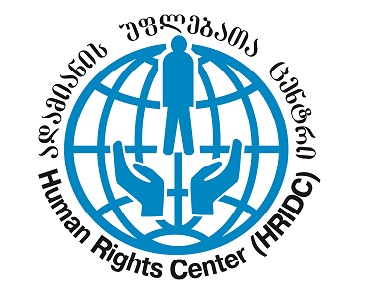Human Rights Center calls on the City Court not to restrict the right of Zaza Saralidze’s lawyer to attend the court hearings
September 14, 2019

HRC continues defense of the interests of Davit Saralidze’s family, who was ruthlessly murdered in Khorava Street, Tbilisi on December 1, 2017. On September 12, 2019, the Tbilisi City Court resumed examination of the criminal case against defendant Mikheil Kalandia, who is charged of group murder committed in aggravating circumstances. The father of Davit Saralidze – Zaza Saralidze was questioned at the trial. HRC lawyer Nestan Londaridze defends his interests in the court.
At the trial of September 12, where Zaza Saralidze was questioned as a victim, the court did not allow his lawyer to attend the hearing regardless the request of the victim. Consequently, the HRC lawyer was deprived of the right to attend the questioning of Zaza Saralidze, though she represents him in front of all state institutions and the court, which examine the Khorava street murder case.
The Constitution of Georgia guarantees the right to defense. In accordance to the Article 56 Part I of the Criminal Procedure Code of Georgia, a victim is represented as a witness and shall be assigned all rights and obligations of a witness. The only difference between legal statuses of the victim and witness is that after granting the victim status, the law-maker assigns particular right to him/her to have access to case files and get information. Of course, the witnesses and victims have different roles, rights and obligations at different stages of the criminal proceedings, but when making testimonies in front of the court, the Criminal Procedure Code of Georgia grants them equal status and determines that the witness’ rights and obligations are assigned to the victims too. At the same time, access to justice for the victims includes effective access to legal defense, participation in the court proceedings, right to be respected and honored, defended, compensated, assisted and supported, and right to have legal protection.
OSCE member states took obligations to ensure fair approach and access to justice for the victims, where particular attention is paid to represent the victim by legal representative in order not to hinder implementation of the right of the victim to independent, effective and competent defense. Right to confidential and privileged communication between the lawyer and the client is the core of the fair trial.
It is noteworthy, that at the court hearing, on September 12, the defense lawyer asked questions only about political developments and requested Zaza Saralidze to evaluate his past statements. Human Rights Center believes that the questions aimed to politicize the court proceedings and the desire of the defense side to demonstrate political interests of the victim lacked all grounds. At the same time, the questions were absolutely irrelevant to the case, where the court shall consider criminal liability of the concrete defendant.
HRC representative was actively engaged in all stages of legal proceedings over this case. She never faced obstacles to defend interests of the victim in any institutions. The decision of the court to restrict the right of the victim’s lawyer to attend the trial is unclear for the Human Rights Center.
Human Rights Center calls on the Tbilisi City Court to respect the victim’s rights in accordance to the Georgian national and international laws and ensure the attendance of the victim’s lawyer at the next hearings.
Human Rights Center
News
December 13, 2023
Ethnic minorities outside the peace dialogue
November 6, 2023
‘Peace’ agenda of political parties
Popular
Articles
February 13, 2024



